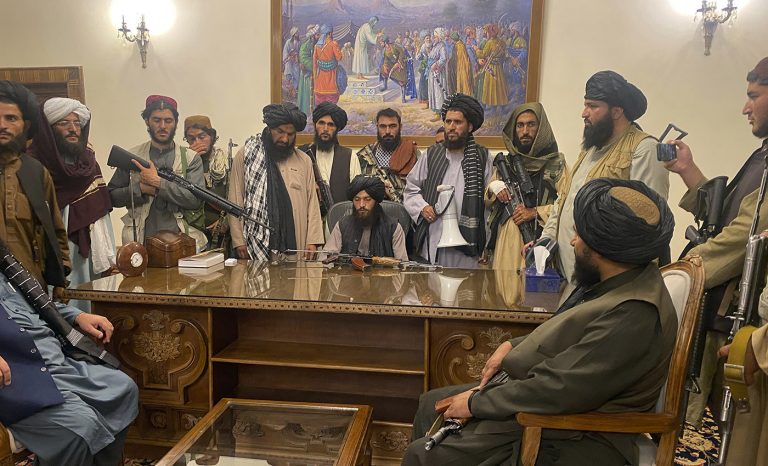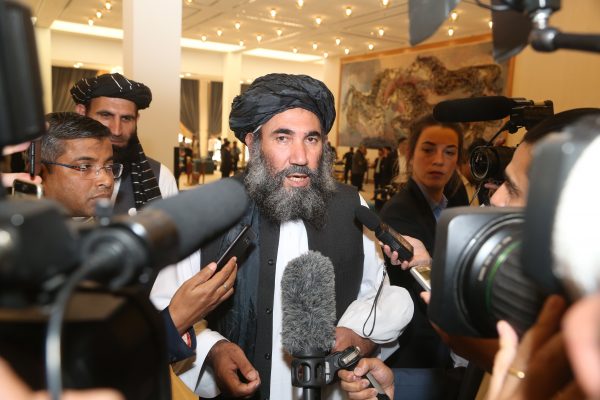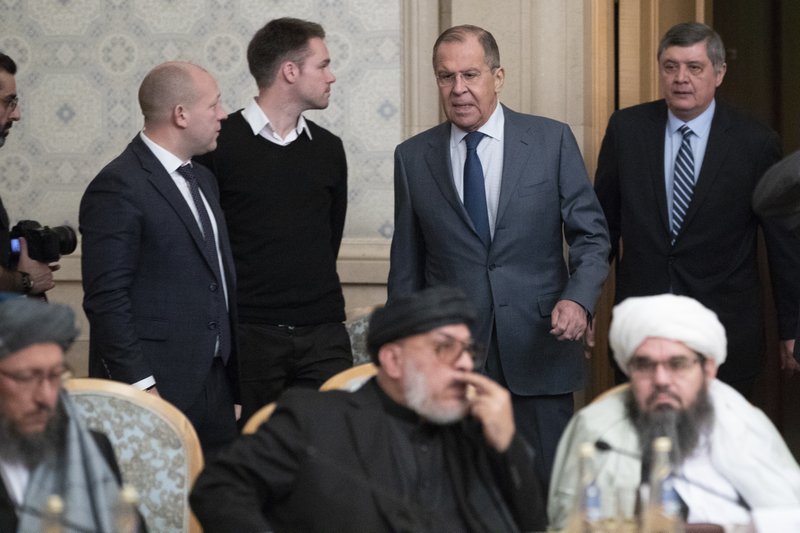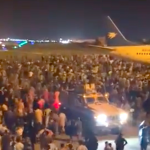The fall of Kabul and the rapid recapture of Afghanistan by the Taliban surprised only outside observers. But what left the Biden administration largely speechless was the disbandment of the Afghan armed forces: well-equipped but incapable of reacting to the Taliban advance.
The time they took to conquer almost all of Afghanistan was faster than expected. Maybe even the Taliban themselves had not imagined it that way. Suddenly it seemed that there was in fact no military or political strategy by the US administration for such a situation, although this was predictable.
Kabul has now fallen. The Taliban entered the presidential palace. Embassies rushed to empty their offices.
The defeat appears even more serious when one considers that the commitment of US-led NATO forces has lasted for twenty years. More than 80 billion dollars have been spent with the involvement of many nations and in addition to hundreds of NGOs that have operated throughout the territory and in all sectors.
Kabul has repeated the scenario of Iraqi failure in the face of ISIS victory in Mosul in 2014. Many cities have been abandoned without even fighting. Two or three reasons that try to explain what happened.
The political institutions of Afghanistan after 2001 have always been weak and not deeply rooted in the territory. And the Afghan soldiers did not want to die for corrupt leaders who over the years have been obsessed just with their own interests and their tribal games.
Then the speed with which the US forces left simply demoralized the Afghans who felt abandoned, which actually happened. A sense of betrayal was already felt from the moment of the Doha agreement negotiated by the Trump administration. The agreement was made without Afghan participation, without a political agreement between the parties involved, and did not even provide for a ceasefire (the Taliban were only asked to stop attacking US troops but not Afghan troops and civilians).
The Afghan army was trained to fight with air support from Western forces. After their departure, fundamental support was lacking.
How did it come to this point?
According to various military sources, there have been various errors. Only the Americans, together with the British, were involved in fighting, while the Europeans, led by Italy and Germany, were involved only in peacekeeping operations. The result was a jammed and poorly coordinated mechanism. In fact, all contingents, except the British one, continually resorted to the Americans to defend themselves from attacks. And this has done nothing but prevent effective and timely action in a war theater.
The other mistake was that of failing to seal the border between Afghanistan and Pakistan in a determined way. It was there that the Taliban were the most present and that is where the most intense battles took place. Neglecting this boundary allowed them to survive and organize themselves over time.
Another mistake seems to have been precisely the number of men on the ground. If we look at the figures it might seem like a conspicuous presence. But Afghanistan has a very large territory, the ways of communication are scarce and poor. And from a military point of view that creates communication difficulties especially as for the troops’ movement.
And finally, we come to the activities dedicated to civil society. The West has sinned in repeating the mistakes of all time: “Western” programs with values imposed from above in a tribal and conservative society, local customs unknown to both the military and NGOs, often unskilled personnel with little professionalism to manage amounts of money that served to feed the corruption.
At this point what is the scenario?
With the conquest of power, however, a new phase begins in which the Taliban will have to govern. If we only watch the first statements it is clear that the young Taliban will want to create contact channels. Power management is a complex issue. It is one thing to wage war on a government in power, it is quite another to have it and make it work.
The Taliban now need recognition, at least informal and partial, by some countries. It is true that they will ask Pakistan in the first place, which was perhaps the most ambiguous actor in this very long crisis. And Pakistan will probably do so behind the promise to keep India out. It will have to do it with caution, without risking too much its international credibility.
But the Taliban will also seek international legitimacy. The question is what compromises the Taliban leaders might be willing to make to get it.
They could accept the replacement of the Afghan government with one led by Abdul Ghani Baradar. But in no case should this move deceive. After a decent interval, they will expel non-Taliban members from that government.
Then the question of internal political and ethnic cohesion will arise. Also in this case a difficult horizon is outlined. The Taliban are politically anything but a cohesive and monolithic organization. And the situation is no less complicated when it comes to the ethnic one. War and conflicts between various ethnic groups and tribes are historical and endemic issues.
Last but not least, the thorny economic question will be posed to the Taliban government. The war economy feeds on smuggling, robbery, and drug trafficking. But governing a State and its economy is another thing that needs practical answers.
International aid will most likely be zeroed or almost zero and none of the countries that currently have ties and have initiated relations with the Taliban such as Pakistan, Iran, Russia or China will be able to provide strong economic support. Watching the trend of the Chinese economy, even Beijing will have to move with great caution. Politically they have a lot of leeway for any strategy, but economically it is not said that they are willing to invest large sums in Afghanistan.
What are the States that will benefit the most from the American withdrawal?
The American withdrawal decided by the Biden administration took place without consulting with the allies and apparently without even a political strategy of withdrawal. The move undermined 20 years of work and sacrifices, paved the way for a humanitarian catastrophe, and strategically created two major problems: it challenged the credibility of the United States and created a void that will be filled immediately from neighboring powers to Afghanistan.
Pakistan has always given hospitality to Taliban tribal leaders and often also Pakistani passports to allow them to move. The US exit removes the security lever New Delhi was using to expand its influence in Afghanistan at the expense of Islamabad. And also Pakistan could be China’s Trojan horse in Afghanistan since there is a political and economic entente between the two countries.
China is interested in incorporating Afghanistan into its Belt and Road Initiative (BRI), and it certainly needs greater market access for Afghan copper, lithium, and oil, as well as expelling the US from Central Asia.
Most likely, the Kabul authorities will engage with China for the extension of the $ 62 billion China-Pakistan Economic Corridor, an important part of the BRI, through which China wants to connect Asia with Africa and Europe. By virtue of its position as a hub linking the Middle East, Central Asia, and Europe, Afghanistan can provide China with a strong strategic base.
Iran has always had historical, ethnic, and religious ties with Afghanistan. But while before 2001, it supported – with Russia and India – the Northern Alliance against the Taliban, with the Pashtuns, and Sunni radicals supported by Pakistan, today Tehran has ruled out the possibility of interventions against the Taliban.
Tehran’s policy towards the Taliban after the US attack was very pragmatic. The agenda is vast: the exclusion of the US from Central Asia, the fear of the contagion of Sunni extremism, the persecution of Afghan Shiites, irrepressible waves of immigrants. Officially there are 750,000 Afghan immigrants in Iran, but in practice, they seem to exceed 2 million. The border with Afghanistan is 950 km long and is certainly uncontrollable. Another sensitive problem concerns drug trafficking and water which Tehran needs continuously.
Russia has already moved too. Just see that, unlike other States, Russia is not evacuating the embassy from Kabul. It has initiated contacts with the Taliban and is observing developments. For Moscow, the main question is not who is in power in Kabul, but to protect Central Asia from jihadist contagion. So it would not openly support any anti-Taliban Afghan forces.
Meanwhile, Russian forces are making military training with the Uzbeks and Tajiks in the Afghan Tajik borders.
India is far away and too weak to intervene, despite being hostile to the Pakistani-backed Taliban. New Delhi has seen a fall in its plans to link Afghanistan with Chabahar. The port of Chabahar could have been India’s gateway to Afghanistan, Central Asia, the Russian market, and finally the European ones. But after the Tehran agreement with Beijing for 400 billion dollars investments, it understood that Iran can no longer be its transit corridor to Central Asia.
Whether we like it or not, Europe and the United States will still have to have and maintain relations with the new government. The United States came out unilaterally, but giving up influence and playing a role in Afghanistan as not a plausible option.
There was certainly a big failure, intelligence and policy failure. War is worth nothing if politics loses. And probably the only levers that Europe and the United States have in their hands right now are the mediation byQatar and Turkey, which focuses on its historical ties with Afghanistan and its status as the only NATO member with a Muslim majority.
Post Author
Author
-

Researcher on International Relations Middle East and Balkans
View all posts
CSSII- Centro Interdipartimentale di Studi Strategici, Internazionali e Imprenditoriali,
Università di Firenze, Italy, Albania







